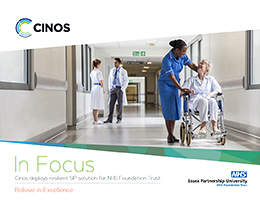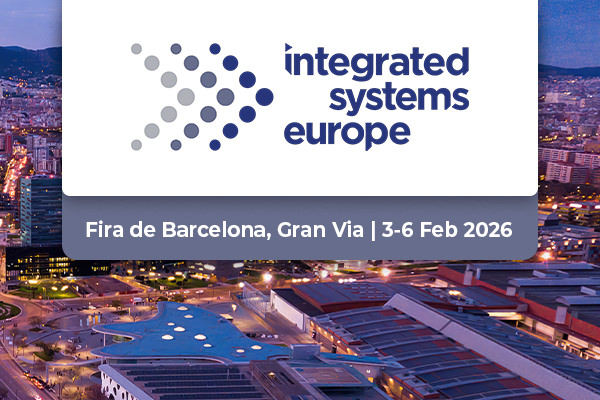Introduction
Essex Partnership University NHS Foundation Trust (EPUT) provides community health, mental health and learning disability services to approximately 2.5 million people throughout Bedfordshire, Essex, Suffolk and Luton.
The formation of the Trust in April 2017 brought with it different approaches to phone and IT services, as well as various legacy systems. Coupled with the gradual phase-out of PSTN (Public Switched Telephone Network) and ISDN (Integrated Services Digital Network), the Trust’s main objective was to modernise its telephony services.
Voice and telephony services play a crucial part in the day-to-day operations at EPUT. With 5,000 members of staff working across 200 sites, the Trust wanted to consolidate and modernise its existing legacy telephony estate. Not only to provide a better service to patients but also to improve the working environment for staff.
The Requirement
As part of the project, EPUT required its selected supplier to undertake all migrations. This involved replacing traditional ISDN and BT Featurenet lines in favour of new Session Initiation Protocol (SIP) service provisions, as well as installing a range of new handsets with enhanced functionality to staff across all sites.
Finally, EPUT also wanted to streamline its call centre operation and gain more visibility around call statistics, enabling them to deliver a better service to patients calling into the Trust.
David Lawrence, Associate Director of IT Strategy, Technical Projects says: “Having multiple legacy services made things difficult. For example, if employees wanted to place a call from one site to another, in some instances they would be able to do that as an extension call at zero cost – as it’s on the same network. But at other sites, calls would be placed between different networks, meaning they were Off-Net and incurring charges.”
The Solution
By bringing all services onto the existing in-house platform, based on Cisco’s Unified Communications Manager, EPUT could expand on the existing investment made by the former South Essex Partnership University NHS Foundation Trust, improving efficiency and reducing costs.
The scope of the deployment by Cinos included installation of 1,500 Cisco handsets, setting up Cinos connectivity services, provision of SIP channels and delivery of professional services.
Previously, all PSTN connections at the Trust were made through ISDN services with every site using its own circuit. Not only was this a costly solution to maintain but it also meant that in the event of a failure, EPUT would have to wait for the service provider to restore the system. Within a short period of five months, Cinos retired the traditional services and replaced them with two new SIP channels, delivering enough capacity to allow the Trust to migrate away from ISDN services altogether.
This has enabled EPUT to consolidate and centrally manage connectivity, reducing the number of dedicated telephone lines and enabling significant cost savings. It has also given them the additional resilience to ensure constant connectivity in the event of an outage and carry out upgrades with minimal impact to end-users.
It was crucial that each part of the new telephony system was operational on the day of the move, which meant that Cinos ported all numbers, so employees didn’t have to learn new numbers and relocated legacy hardware in a way that did not impact day-to-day operations.
The Benefits
Utilising SIP has enabled the Trust to widen its unified communications offering across the organisation. Supporting the rollout of Cisco Webex and delivering enhanced capabilities such as audio web and video conferencing, instant messaging and presence – the ability to see when someone is available. As well as:
Implementing SIP-based systems has significantly reduced the cost of the Trust’s telephony services, whilst improving resilience and operational efficiency.
“With the majority of the organisation now on the Cisco UC Manager system we’re able to route more calls over our IP infrastructure and employees can make calls to each other’s extension lines at zero cost,” says David. “The combination of lower line rental costs and reduced call per minute charges has generated savings.”
Extension mobility
With extension dialling between users, internal communications have been simplified. Users can work from any site and simply logon to a system phone using their extension number.
From a business continuity perspective, it’s given staff the flexibility to work from home or reduce their travel by logging on at local sites within the Trust.
Improved patient service
The contact centre application provides scalable call monitoring that allows EPUT to enhance the service provision it delivers to patients calling into the Trust. By gaining greater visibility over peaks and troughs, EPUT can route calls to available agents at any site, improving their ‘speed to answer’ and stopping patients from sitting in unnecessary queues.
| Cinos delivered a solution that responded to our needs and joined up the North and South parts of our organisation. We knew that replacing our traditional ISDN services with SIP channels would give us the functionality and flexibility we needed.
Cinos managed all elements of the migration with minimal impact to our end-users. As a result, our updated infrastructure is delivering considerable cost savings to the Trust. |
||
|---|---|---|
|
David Lawrence
Associate Director of IT Strategy, Technical Projects |
Cisco Unified Communications Manager
Cisco Unified Communications (UC) Manager is the core of Cisco’s collaboration infrastructure which brings people together anytime, anywhere and on any device. It enables organisations to consolidate their communications infrastructure whilst offering IP telephony, high-definition video, unified messaging, instant messaging, and presence. The solution has extensive features to support mobile and remote workers.
Utilising the Cisco UC Manager at EPUT delivered significant cost savings. Not only has it allowed staff to route calls over the IP infrastructure at no cost, it has set up EPUT to expand on existing telephony investments, further improving efficiencies and reducing costs. On top of this the rollout has enabled EPUT to offer first class collaboration services to their staff in the form of Cisco Webex accompanied by a range of IP handsets.
Cisco IP Phones
As part of the telephony overhaul Cinos delivered over 1,500 Cisco IP Phones into the Trust. These VoIP phones ranged from the cost-effective 3900 and 7800 Series to the high-quality 8800 Series, offering HD desktop video collaboration, crystal-clear audio performance and integration with mobile devices.
The introduction of Cisco IP Phones at EPUT has provided staff with simplified and yet much more effective internal communications experience. Users are no longer confined to their desk. They can work from any site and simply logon to a Cisco phone using their extension number. It gives staff a much greater level of flexibility, whether that is working from home or reducing their travel by logging on at a local Trust site.
Connectivity and SIP telephony services
Underpinning all of the Cisco technology is Cinos’ connectivity and SIP telephony services. Previously all PSTN connections at the Trust were made through ISDN services with every site using its own circuit, or legacy Centrex style service. Over the course of the project, Cinos replaced traditional services with modern SIP trunking, delivering enough capacity to allow the Trust to move away from ISDN and Centrex services altogether, in favour of a single platform for all communications.
Not only has this enabled EPUT to consolidate and centrally manage connectivity, it has reduced the number of dedicated telephone lines across the Trust, resulting in significant cost savings. And the advantages don’t stop there. Utilising SIP has allowed EPUT to widen its unified communications offering, provide additional resilience to guarantee constant connectivity in the event of an outage and carry out upgrades with minimal end-user disruption.





